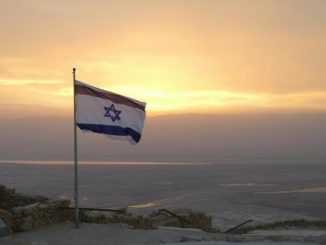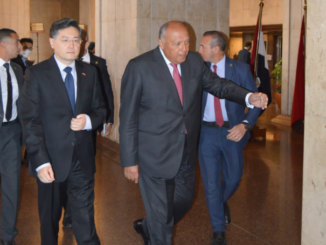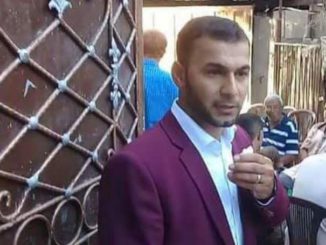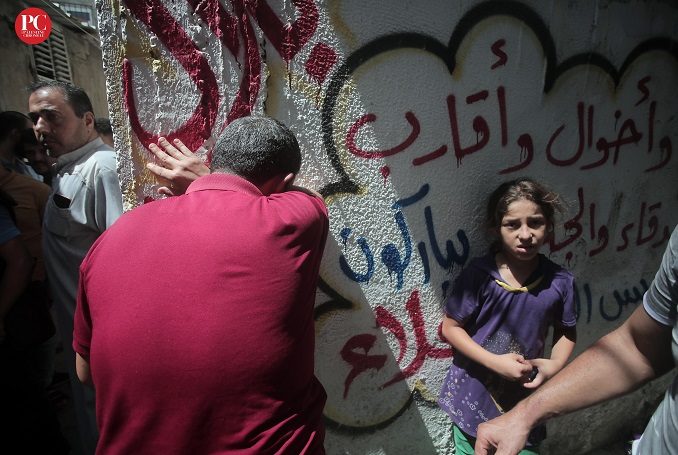
By David Harrop
“A basic human requirement is the need to dwell, and so to inhabit a place connecting ourselves to a place on the planet where we belong, and which belongs to us.” – Jun’ichiro Tanaziki , In Praise of Shadows 1967
For Palestinians who have existed trans-generationally for 74 years under the yoke of Israeli occupation, it is often a case of finding creative ways to manage the tension between the person and the space in which they exist. This existence has the potential to be a daily experience of stress, fear, and humiliation.
It seems that there is a paradox since the less safe and fearful somebody feels, the greater their psychological and emotional need for a safe place becomes. This is particularly so for Palestinian children and youth who live in the constant shadow of violence, insecurity, and existential threats.
Joronen (Geopolitics 2016) identifies a scale of ‘precariosity‘ of childhood whereby the children who are caught in the crosshairs of a military occupation score highly on this index. From such a point of being regularly terrorized many Palestinian children must conduct their daily lives. For those who live in refugee camps, there is often an increased level of childhood precariosity.
One young person from Dheisheh camp in Bethlehem recalled that whilst her family and friends had told her that she had been present during certain violent and terrifying events, but her conscious mind appeared to have repressed it and she had been unable to call up the memories.
“I was there. I know that I must have been there, and my parents told me I was there when the soldiers came into the house and when the helicopters with searchlights were over the camp, but I absolutely can’t recall any of it”.
Another said:
“Living here I can’t feel safe in the world around me and I can’t even feel safe in my own head and in my own skin”.
Arguably, the occupation seeks to crush all Palestinian resistance. Civil society is subjected to surveillance and censorship, and this frequently results in levels of self-censorship and self-surveillance. This often results in the occupation becoming an internal phenomenon. This constant process of self-scrutinizing intrudes and is present in the everyday psyche and results in levels of hypervigilance.
These processes are often exacerbated through the process of detention and imprisonment. Discussions with Social work colleagues who work with children and youth after they have been released from prison, universally attest to the children’s experiences of being terrorized and of interrogations. Defense of Children International Palestine (DCIP) records extensive testimonies of children being severely psychologically damaged through these experiences.
Their campaign to raise awareness against the abuse of Palestinian children by the occupation “No way to treat a child” highlights many testimonies of youth who have been abused, violated, arrested, isolated, and seriously injured by the Israeli military.
Within the community, they continue to be terrorized by the occupation. Between 2016-18, in the Dheisheh Refugee camp in Bethlehem, youth were harassed by an Israeli military commander who gave himself the nom-de-Guerre of Captain Nidal. He used social media to target youth and make threats to kneecap a generation of refugees. This proved not to be an idle threat and there are many severely disabled young people who were injured during the time of his sadistic command.
These experiences of oppression are dehumanizing, and many bodies have recognized that these are crimes against humanity. Radical grassroots street-based social workers engage with youth as part of a counter process and as a means of addressing this and as means of helping to liberate youth from such dehumanization. This is a proactive and engaged form of practice
Such practice draws upon the commonality of these experiences and seeks to de-pathologize, and so to draw out the ubiquitous nature of such experiences. Many quote the importance of Paulo Freire’s philosophy (Pedagogy of the Oppressed, 1968) in shaping and informing their practice. They draw from issues of popular education in terms of supporting youth to orientate themselves into their underlying political context of being colonized and oppressed.
Much of their surface activity centers around engaging youth in collaborative activities which address and articulate their struggle and their context. All activities are centered on articulating a narrative and drawing from a collective voice. Such re-articulations of subjective experiences seek to give a platform for an authentic narrative of liberation
Activities with practitioners who engage with youth will often include theatre, film, rapping, dance, artwork, journalism, graffiti, all of which are conduits for articulations of subjectivity, and to raise both collective and individual political awareness.
Prabahker P. argues that Palestinian rappers and hip-hop artists occupy liberatory and expressive spaces and that they represent a critical ‘third space’ for Palestinian youth.
This not only allows for a place of refuge (and safety) from the oppressive and spatial bodily experiences of the occupation but in drawing from the experiences and lyrics of Afro-American rappers, such as Tupac Shakur enables Palestinian Youth to have the capacity to reflect upon their own experiences of oppression. Arguably, through this medium, Palestinian youth are seeking ways to defend their own heritage and identity against those who would say that they had no right to exist.
The 2018 film Palestine Underground (Boiler room Films) follows the lives of Palestinian rappers and charts the development of their narrative and potency as they seek to articulate an authentic narrative for Palestinian youth.
Hip-hop has become a politicized voice of protest, mobilization, and education for disenfranchised Palestinian Youth which echoes the writings of resistance and liberation of earlier writers such as Darwish.
In The New Politics of the Community (1999), Patricia Hill Collins discusses the concept of safe spaces, which she argues are critical places where the oppressed can be free to explore the nature of their realities and gain a perspective of their experiences of structural oppression.
Thanks to a research grant from the University College of Dublin, I was able to visit Palestine and speak with many participants in such street social work interventions. Many have indicated that the experience of such engagement has not only been therapeutic, in terms of helping them to process and address their trauma, but it often becomes a platform that allows for personal growth and development. Arguably these are the opportunities, which by either accident or design, the occupation seeks to deny them.
This linking of theory and practice by Palestinian street social workers represents a praxis, a binding of theory with day-to-day practice which defines how they engage with youth daily.
Palestinian street social workers with an affinity with youth and their lived experiences lead to a deeply collaborative process of practice and have the potential to be an exemplar to the global social work profession. Particularly when seeking to address ways to not only safeguard and protect the vulnerable and persecuted but also to find ways to empower the oppressed.
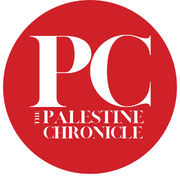
– David Harrop is an independent UK-registered social worker and co-founder of Palestine UK Social Work Network (PALUK) in 2011. Contact the author at his address email: harrop_david@yahoo.co.uk. He contributed this article to The Palestine Chronicle.

